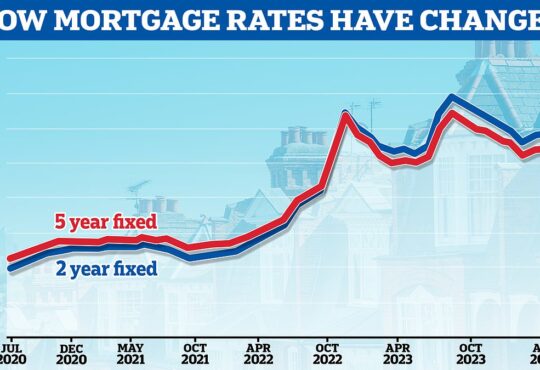
By Tanya Jefferies for Thisismoney.co.uk
06:00 20 Jun 2023, updated 06:00 20 Jun 2023
- Legislation to ratify getting rid of the lifetime allowance is still pending
- ‘Fixed protection’ allowed savers to breach the LTA without attracting charges
- Some new rules remain unclear, and pension sums at stake can be huge
Savers eager to pay into pensions again after the £1.1million lifetime allowance was scrapped are being warned to take precautions – or even hold off for now – if they have ‘fixed protection’.
This is because legislation to get shot of the lifetime allowance is still pending, some of the new rules remain unclear, and the pension sums at stake can be huge, according to pension experts.
The Chancellor announced in the Spring Budget that the total limit on what people could have in their pension pot without facing tax penalties would be ditched from April 6.
People who had applied in the past for ‘fixed protection’ or similar versions of it, a concession that allowed their pensions to breach the lifetime allowance without attracting tax charges, were also permitted to restart contributions.
But the Finance Bill is not expected to reach the final stage of receiving Royal Assent until at least July, or after parliament’s summer recess which would put it back to September or October.
No significant changes are anticipated during this process, but precautionary measures are still being urged on savers.
Related Articles
HOW THIS IS MONEY CAN HELP
Confusion over notifications to HMRC
Adeel Patel (whose name has been changed) received an alert from his pension provider Interactive Investor after making two £1,000 contributions to his £800,000 pension in May.
This told him he was responsible for notifying HMRC that his fixed protection no longer applied within 90 days, or he would be liable to penalties of up to £300 for failure to notify then daily penalties of up to £60.
Dr Patel, a 54-year-old GP who lives in Lancashire, had applied for ‘fixed protection’ in 2014.
That allowed his pension to grow in value to £1.5million, well above the LTA limit which was £1.1million by 2023, without incurring tax penalties – but only on condition he didn’t make any further contributions.
Pension funds can swell in value even without contributions due to compound growth, as we have previously noted.
Fixed and similar versions of protection – individual, primary and enhanced – were scrapped along with the LTA itself from 6 April, though some special rules still apply, notably regarding tax-free lump sums.
Dr Patel had previously received two emails from II about the changes. These cautioned him that legislation was still pending, and to speak to a financial adviser before contributing to his Self-Invested Personal Pension (Sipp).
However, Dr Patel felt II had issued ‘mixed messaging’ on the changes.
‘It creates confusion and anxiety and undermines trust,’ he told us.
He says regarding his first two emails from II: ‘It’s not financial advice but it’s clear information on the rules. I followed these rules and now they are saying something different.’
II said that as the practical implications of the LTA changes are still being worked through, it felt prudent to continue issuing communications to people in Dr Patel’s circumstances that they are obligated to notify HMRC if they contribute to their Sipp and have certain types of protection.
‘That is because it is not entirely clear from HMRC’s guidance whether there is still a notification requirement,’ it said.
‘We would like to apologise for any confusion caused and can clarify that we do not think Dr Patel’s protection has been invalidated.’ Read II’s full statement below.
HMRC confirmed that those who applied for fixed protection before the Budget date of 15 March will not lose its safeguards if they contribute to a pension scheme from 6 April, and notification rules are waived.
However, fixed protection conditions remain in force for anyone who applied for it on or after 15 March, including the notification rules and penalties.
Wait for LTA changes to become law
People with fixed protection should ‘hold tight’ and delay making pension contributions until after the pending Finance Bill receives Royal Assent, is the view of Evelyn Partners financial planning director Gary Smith.
He notes that the 25 per cent tax free lump sum has been capped at £268,275 – a quarter of the current LTA limit – unless you have fixed protection in which case the higher figure related to that will apply.
Therefore, it is not worth people risking losing the extra tax free cash they will be entitled to under fixed protection, he says.
There is the potential for the details to be amended and that is why I am recommending my clients, who have fixed protection, to defer making contributions
Mr Smith thinks it is unlikely HMRC would apply notification penalties in Dr Patel’s case, but reckons if he is still in the cooling off period after his contributions it could be worth trying to get them refunded and making them again later due to the concerns outlined above.
‘Following the Chancellor’s Budget statement in March, the pensions industry is somewhat in flux, as we await for the Finance Bill to go through Parliament and for the legislation to receive Royal Assent,’ says Mr Smith.
‘Until then, there is the potential for the details to be amended and that is why I am recommending my clients, who have fixed protection, to defer making contributions until Royal Assent has been granted.
‘Until the legislation is changed, pension providers still have a responsibility to advise their clients when protections could be lost, and the timescales for notifying HMRC and the potential tax charges that could result.
‘I would encourage those with fixed protection to defer making pension contributions until Royal Assent has been given, and hopefully this will be prior to the summer recess of Parliament in July.’
Some links in this article may be affiliate links. If you click on them we may earn a small commission. That helps us fund This Is Money, and keep it free to use. We do not write articles to promote products. We do not allow any commercial relationship to affect our editorial independence.





